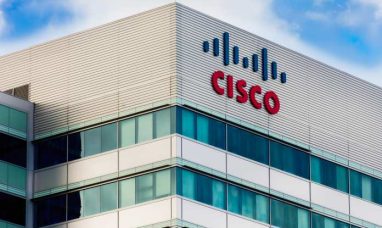Last week, CVS Health (NYSE:CVS) stock rose after the company agreed to acquire Signify Health (NYSE:SGFY). CVS Health is frequently portrayed as a drugstore company, while Signify Health focuses on value-based payment solutions. The transaction makes more sense when you realize that CVS Health is working to become an integrated, diverse healthcare organization. This acquisition and other recent actions could boost CVS stock over the long term. I think Signify Health shareholders will profit from this deal. Despite growing top and bottom lines in recent years, the agreed-upon takeover price made the company’s shares expensive. So while it may seem odd to say, both parties are walking away from this better than before, with Signify Health’s shareholders seeing more immediate benefits and CVS Health investors seeing longer-term prospects.
The CVS-Signify Deal
CVS Health and Signify Health’s transaction is simple. CVS Health has agreed to buy all of Signify Health’s outstanding stock for $30.50 per unit in cash, valuing the company at $7.6 billion. Enterprise value should be $8 billion. Signify Health shares were $28.77 before the deal. As recently as August 19th, its shares were at $21.20. In that time frame, the stock had a 43.9% premium.
Signify Health stockholders’ profit here. The cash deposit quickly increases the premium. Some investors may consider the deal insufficient to justify the enterprise’s value. Signify Health’s revenue is expected to grow from $337.9 million in 2018 to $773.4 million in 2021. The company’s bottom line improved throughout this time. The company moved from losing $28.9 million to making $19.7 million. Adjusted for changes in working capital, operating cash flow rose from $35.6 million to $129.9 million. EBITDA grew from $79.1 million in 2018 to $171.2 million in 2021.
Signify Health’s revenue grew in 2022. First-half revenue was $462.7 million. That’s 17.8% more than the year before. Although favourable, the company’s earnings statistics were mixed. The company went from losing $23.2 million to $381.4 million. Operating cash flow fell from $66 million to $35.5 million. The company’s adjusted operating cash flow multiple rose from $61.5 million to $82.2 million, and EBITDA rose from $89 million to $107.6 million.
A standalone Signify Health’s future is unclear. In 2022, management had high hopes. They initially expected revenue of between $845 million and $858 million. This would be a 10.1% rise over last year’s revenue. Some of this was due to acquisitions, while organic growth was expected to be 4.1%. Management solely offered EBITDA guidance. $251.2 million was expected. Assuming that adjusted operating cash flow would have climbed at a comparable rate, that metric would have risen to $191.3 million. This amounts to a forward price-to-adjusted-operating-cash-flow multiple of 39.7 and a forward EV-to-EBITDA multiples of 31.8. These are lofty levels for most businesses.
This acquisition helps CVS Health become an integrated, diverse healthcare firm. CVS Health’s management team said the purchase would play a ‘vital role’ in furthering the company’s health care services strategy and accelerating its value-based care growth. Management seems interested in the acquisition’s ability to improve its connection to customers in the home and enable clinicians to address patient demands better as it strives to reshape the American health care experience. Management wants to expand and develop new multi-payer offerings.
This makes logical given Signify Health’s business model. Signify Health offers many solutions, according to its management. For instance, under the Home & Community Services operations, it makes available in-home health evaluations using a mobile network of credentialed providers in the US. Through this, the organization creates a comprehensive, recorded record of its health plan clients’ medically complex populations and attempts to engage them with the health care system. They leverage customer data to use advanced data analytics to find the highest priority persons for an in-home health evaluation. They then engage those members to book appointments for these evaluations. The COVID-19 pandemic drove the company to use telemedicine for in-home health evaluations. It’s the same kind of virtual review. For some consumers, the company uses social determinants of health to recommend them to community-based organizations in its network to address food insecurity, slip-and-fall risk, social isolation, and more.
Under Episodes of Care Services, Signify Health establishes provider networks, builds software, and provides services. It offers episode-based healthcare financing. It focuses on payors and providers who provide episode-of-care programs. Management says the company is the largest Bundled Payments for Care Improvement Advanced Program convener, holding contracts directly with CMS. And in this segment, the company also provides a variety of other services like helping accountable care organizations manage the post-acute care of patient populations and offering health plans a solution to manage the clinical needs and well-being of their members who have complex chronic health conditions. It also works to transition patients from a hospital or post-acute care facility back to their homes.
This business should fit with CVS Health‘s offerings. The company has three primary segments. Health Care Benefits account for $82.2 billion, or 24.5% of business revenue. As of the end of the 2021 fiscal year, that entity served 35 million people. This area offers traditional, optional, and consumer-directed health insurance products and services. It also provides workers’ compensation administrative services. The Pharmacy Services division, the company’s largest, accounts for $153 billion, or 45.6% of overall sales. It offers plan design and administration, formulary management, retail pharmacy network management services, mail-order pharmacy activities, and more. Retail/LTC sells prescription drugs and other products and services to customers, including MinuteClinic walk-in medical clinics. This unit contributed 29.9%, or $100.1 billion, to 2021 company revenue. It dispensed 26.4% of retail pharmacy prescriptions last year. Adding another unique company diversifies the company and adds to the value chain to better serve customers.
CVS Stock Likely to Get a Boost From the Acquisition
The benefits that CVS Health will get from the purchase of Signify Health are tough to predict. The company will likely exploit its huge footprint to grow itself and its stockholders. Long-term, I think the impact will be favourable to CVS stock. Signify Health investors should applaud the decision. They gain a premium over past share prices, which transfers the risk of developing the business to a larger party. Some investors may think the premium could have been bigger, considering the company’s recent cash flow growth, but I don’t think it should be viewed negatively. CVS stock just bounced off a significant support level and may rise going forward.
Featured Image – Megapixl © Leowolfert















